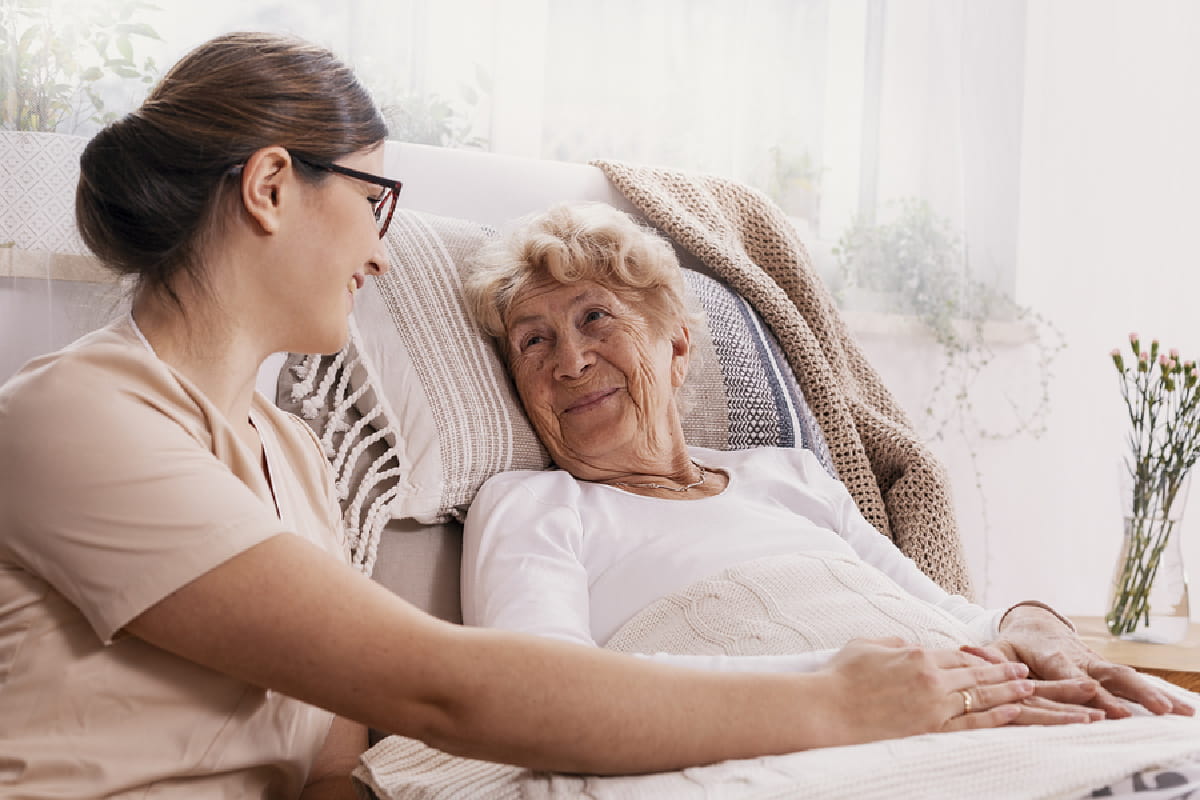After surgery or a serious fall, proper wound care is vital for healing. Your dad fell while getting out of the bathtub and ended up with a gash on his head. He's been to the ER and had the gash stitched. The doctor said he'll need someone to help him with wound care given the location. He also needs someone to watch him for the next 24 hours such as home health care because he has a concussion.
Your mom had surgery to remove an inflamed cyst on the small of her back. Her dermatologist gives you instructions on keeping the incision clean and how to bandage it for the next two weeks.
Another possible scenario is the slow-healing sore on your dad's foot. He has diabetes, and his shoes rubbed and left a blister that became infected. It's not healing well, and you have a detailed list of wound care steps to follow.

What Steps Are Taken When Caring for Wounds?
As you age, wounds may need more time to heal. The skin is thinner, and tissue repair takes time. As the skin heals, it goes through inflammation. Inflammation sends immune cells into the healing wound to kill bacteria and take care of dead cells. The inflammatory response is slower in older adults.
Once inflammation is over, the skin cells begin their work growing and sealing up the edges of the open wound. This is where the thinner skin slows the healing process. There's less of a fat layer to provide cushioning to protect the healing wound.
Bump it, and thinner skin tears easily. It's easier for bacteria to get in. Common chronic conditions like diabetes slow the process even more.
It's essential to keep the wound clean and covered. Surgeons and doctors will give your parents a sheet of instructions. Before they leave the clinic or ER, they'll have a pressure bandage taped over the incision or wound. They need to keep this covering dry and in place for as long as recommended.
When they're allowed to get that area wet, it cannot be rubbed dry. Air drying or patting it dry is a must. Covering it with a bandage is especially important if the wound is in an area where clothing rubs on it.
Monitoring the area for infection is key. You need to know the signs of infection. The incision
may be slightly puffy and red as it heals, but excessive redness and swelling can also mean there's a problem. Contact the doctor if there are concerns.
To prevent scarring, you might be told to apply ointment, such as petroleum jelly. Vitamin E is another option. You need to have clean hands and carefully apply it to avoid pulling stitches or tugging at the healing skin if it's recommended.
What If You're Uncomfortable Filling That Role?
As a family caregiver, you do a lot that you're happy helping with. Wound care, however, concerns you. You might be squeamish and not feel comfortable with blood. It could be difficult for you to take on another responsibility.
If you aren't comfortable with wound care, it's okay. You can hire home health care nurses and have them stop by and care for your parents' wounds. Call a home health care specialist to learn more.
If you or an aging loved-one are considering hiring Home Health Care in Manhattan Beach, CA, please call Mom's Home Care and talk to our friendly, knowledgeable staff.
Our number is: 323-244-4789













